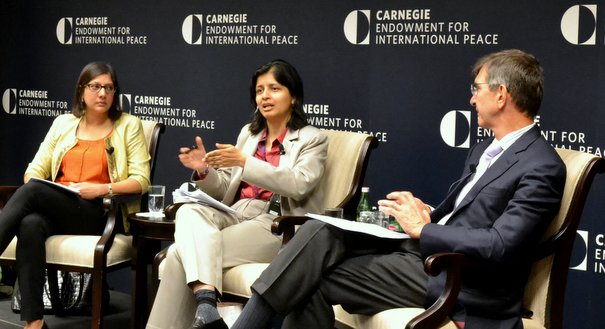Registration
You will receive an email confirming your registration.
The last few months have witnessed nascent efforts to restart high-level bilateral talks between Delhi and Islamabad dashed again by political maneuvering in both capitals. In addition, there has been an uptick in violence along the Line of Control in Kashmir and muscular signaling from both sides. Why has the latest effort between India and Pakistan to talk about the myriad issues between them fallen apart? What can we discern about the approach of Indian Prime Minister Modi toward Pakistan? How do civil-military politics in Pakistan inform its approach toward India? Are the two states doomed to a perpetual state of “not war, not peace,” or is there hope for a way forward? Huma Yusuf and Aparna Pande discussed. Carnegie’s George Perkovich moderated.
Aparna Pande
Aparna Pande is research fellow and director of Hudson Institute’s initiative on the future of India and South Asia as well as fellow at the Center on Islam, Democracy, and the Future of the Muslim World.
George Perkovich
George Perkovich is vice president for studies at the Carnegie Endowment for International Peace. His research focuses on nuclear strategy and nonproliferation, with a concentration on South Asia, Iran, and the problem of justice in the international political economy.
Huma Yusuf
Huma Yusuf is a global fellow at the Wilson Center, where she served as the Asia program’s Pakistan scholar from 2010 to 2011. She is a weekly columnist for Dawn, an influential Pakistani newspaper. She also writes regularly for the International New York Times.
